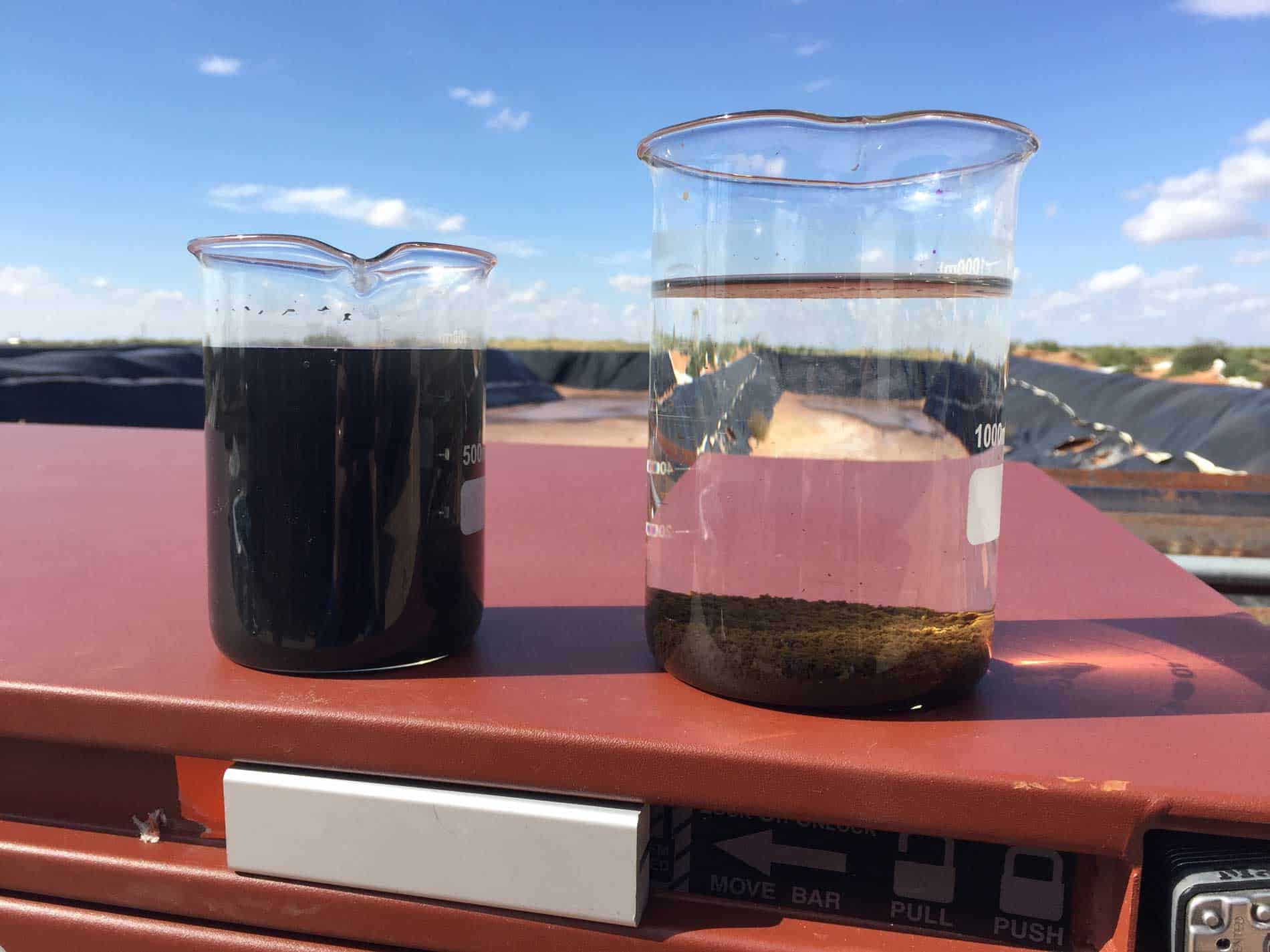Produced Water Salinity Test
The produced water salinity test is a critical analysis conducted to measure the total dissolved solids (TDS) content in produced water, which includes water extracted from oil and gas reservoirs during extraction processes. This test is essential for ensuring regulatory compliance and optimizing production efficiency.
In the oil and gas sector, produced water management is a significant concern due to its high TDS concentration. Produced water often contains various salts that can be harmful if not properly managed. The salinity of this water directly impacts the environment, equipment durability, and operational costs. Thus, understanding the salinity levels is crucial for effective decision-making in well operations.
The test involves collecting a representative sample of produced water and analyzing it using precise laboratory techniques to determine its total dissolved solids content accurately. This analysis helps operators make informed decisions about water treatment processes, recycling, and disposal methods. The primary goal is to minimize the environmental impact while maximizing operational efficiency.
According to international standards such as ISO 8499:2017, produced water salinity testing follows strict methodologies to ensure accurate results. These methods typically include gravimetric analysis or titrimetric methods using standard reference materials. The test can also utilize advanced spectroscopic techniques like ICP-MS for more precise measurements.
Once the sample is prepared and analyzed, the laboratory generates a detailed report that includes all relevant data points such as temperature at sampling time, salinity level in parts per thousand (ppt), and any other pertinent information. This comprehensive report aids stakeholders in understanding the current state of produced water quality and its compliance with regulatory requirements.
The importance of this test cannot be overstated, especially considering environmental regulations like those set by OSPAR Convention or national guidelines such as API RP 1320. Properly conducted tests help ensure that produced waters are managed sustainably and responsibly, contributing positively to both ecological health and corporate reputation.
- Regulatory Compliance: Ensuring adherence to local, regional, and international standards regarding water quality.
- Economic Efficiency: Identifying opportunities for recycling or repurposing produced waters within the operations.
- Environmental Impact Reduction: Minimizing the discharge of contaminated water into natural environments through effective treatment processes.
The data obtained from this test plays a pivotal role in optimizing drilling, completion, and production activities. By accurately measuring salinity levels, operators can adjust their strategies to reduce waste generation, enhance resource utilization, and ultimately lower overall operational costs.
Eurolab Advantages
At Eurolab, we pride ourselves on delivering unparalleled quality in produced water salinity testing. Our state-of-the-art facilities, coupled with experienced technical staff, ensure that every sample receives the highest standard of care and attention.
We are dedicated to providing accurate, reliable results that meet or exceed international standards such as ISO 8499:2017. With our advanced instrumentation and rigorous quality control measures, we guarantee precise measurements of salinity levels in produced water samples. Our commitment to excellence extends beyond mere compliance; it includes proactive support for continuous improvement within the industry.
Our team comprises experts who stay updated on the latest developments in analytical techniques and best practices. This ensures that our clients receive not only accurate results but also actionable insights that can drive improvements across their operations. Whether you need routine testing or one-off assessments, Eurolab is here to meet your needs with flexibility and reliability.
We understand the importance of timely delivery for operational continuity. That's why we prioritize efficiency without compromising on accuracy. From sample collection advice to rapid turnaround times, our goal is to minimize disruptions while providing valuable information that supports informed decision-making.
Why Choose This Test
- Compliance Assurance: Ensures adherence to local and international regulations concerning produced water quality.
- Economic Benefits: Identifies opportunities for water reuse, thereby reducing freshwater usage and associated costs.
- Environmental Responsibility: Minimizes the environmental impact by optimizing treatment processes and minimizing waste discharge.
The produced water salinity test is not just a routine analysis; it's an integral part of sustainable practices in the oil and gas industry. By accurately measuring the salt content, operators can make informed decisions about how to manage this resource effectively. This includes determining whether the water can be recycled back into reservoirs or if alternative disposal methods are necessary.
The test also helps identify potential issues early on, allowing for preventive maintenance of equipment exposed to high salinity levels. Understanding these parameters enables better planning and execution of operations, leading to safer working conditions and longer-lasting machinery.
In summary, choosing this test means embracing a holistic approach towards managing produced water responsibly. It paves the way for sustainable practices that benefit both the environment and business operations equally.
Environmental and Sustainability Contributions
The importance of produced water salinity testing cannot be overstated in terms of environmental sustainability. By accurately measuring the salt content, operators can contribute significantly to reducing their ecological footprint. Here are several ways this contributes positively:
Reduction in Freshwater Usage: Water recycling initiatives enabled by precise measurements help conserve freshwater resources.
Minimized Environmental Pollution: Properly managed produced water discharge leads to less contamination of local ecosystems and water bodies.
Enhanced Operational Efficiency: Optimizing processes based on real-time data improves operational effectiveness, contributing to better resource utilization.
Promotion of Circular Economy Principles: Recycling and reusing produced waters align with circular economy principles by minimizing waste generation.
In conclusion, the produced water salinity test is instrumental in promoting responsible stewardship of resources. It ensures that operations are conducted sustainably, supporting long-term environmental health alongside economic viability.





